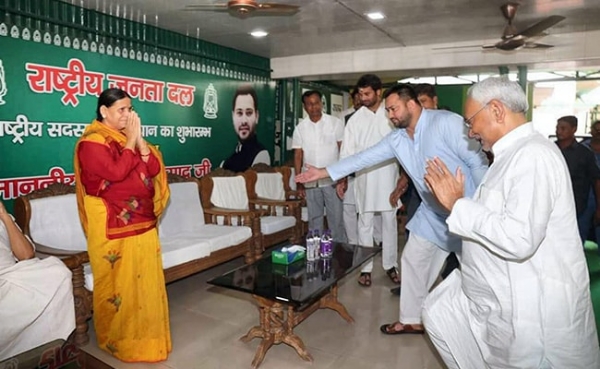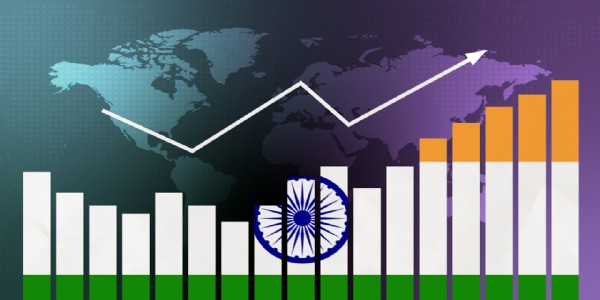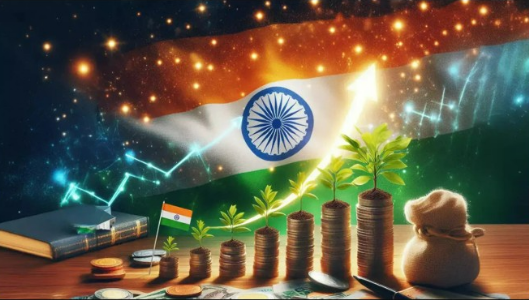Nitish Kumar to be sworn in as CM for 8th time today
For this term, he has recycled his allies from 2015: Tejashwi Yadav, who heads the Rashtriya Janata Dal or RJD, and the Congress; apart from them, the new "Grand Alliance" in Bihar has four smaller regional parties.
Total Views |
Patna, Aug 10: Today afternoon, Nitish Kumar will take oath for the eighth time as Chief Minister of Bihar. The high frequency is on account of his revolving-door policy for allies: easy come, easy go.

For this term, he has recycled his allies from 2015: Tejashwi Yadav, who heads the Rashtriya Janata Dal or RJD, and the Congress; apart from them, the new "Grand Alliance" in Bihar has four smaller regional parties. "This alliance will serve the people, it will fight corruption," Nitish Kumar said yesterday to the press.
By his side was Tejashwi Yadav, 39 years his junior, once described by Nitish Kumar as guilty of all sorts of wrongdoing. In 2017, the younger leader was at the receiving end of Nitish Kumar's wrath. Describing his brother and him as ministers who were incorrigibly corrupt, Nitish Kumar logged out of the alliance and hooked up with the BJP. Yesterday, sources said, Nitish Kumar had, as far back as three years ago, said to Tejashwi's mother, Rabri Devi, at an Iftaar party, "Maaf kijiyega" (forgive me). Within months of going back to the BJP, he was regretting it. There's a fair chance that this is being paraded now as a justification for Nitish Kumar's reconnecting with the Yadav family, one that ensures he remains Chief Minister and is able to fend off the BJP from eating into not just his votes but his MLAs. For nearly 17 years, Nitish Kumar and the BJP were steadfast partners, both in Bihar and in the BJP's national coalition. But when the BJP made it clear that Narendra Modi would be its star leader, ahead of the 2014 general election, Nitish Kumar began to get antsy. He had blamed the then Gujarat Chief Minister for not doing enough to stop the communal riots of 2002; when Narendra Modi visited Bihar, he was slighted by his counterpart publicly.
Their discomfort has never eased up. If Nitish Kumar returned to the BJP in 2017, after a four-year separation, it was out of self-interest. He sensed that the PM's personal popularity could help boost his own success in Bihar, where elections were approaching. He was also worried that Tejashwi and Tej Pratap Yadav, rookie ministers who often played hooky, were tainting his reputation as "Sushashan Babu" or "Man of Governance".






